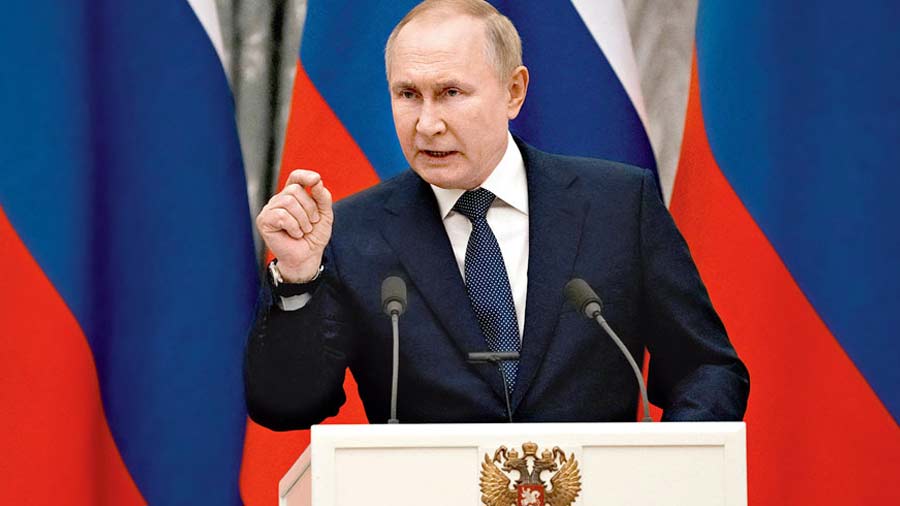An officer in the Federal Guard Service, which is responsible for protecting President Vladimir V. Putin, decided last fall to avoid fighting in Ukraine by sneaking across the southern border into Kazakhstan.
The officer, Major Mikhail Zhilin, disguised himself as a mushroom picker, wearing camouflage and carrying a couple of small bottles of cognac so that he could douse himself and then act drunk and disoriented if he encountered the Russian border patrol. In the dark, the lean, fit major navigated across the forested frontier without incident, but he was arrested on the other side.
“Freedom is not given to people that easily,” he told his wife, Ekaterina Zhilina, months later, after Kazakhstan rejected his bid for political asylum and handed him back to Russia to face trial for desertion.
“He had these romantic notions when he first began his military-academic studies,” Zhilina said in a recent interview, describing perceptions drawn from Russian literature about the honour and pride inherent in defending your homeland. “But everything soured when the war started.”
Major Zhilin is among the hundreds of Russian men who faced criminal charges for becoming war refuseniks since Moscow’s full-scale invasion of Ukraine last year. Some dodge the draft, while those already serving desert or refuse orders to redeploy on the bloody, chaotic battlefields of Ukraine.
In 2022, 1,121 people were convicted of evading mandatory military conscription, according to statistics from Russia’s Supreme Court, compared with an average of around 600 in more recent years. Before the war, a vast majority were fined, not imprisoned. Russia recently passed a measure making it much harder to avoid a draft summons.
In addition, criminal cases have been initiated against more than 1,000 soldiers, mostly for abandoning their units, according to a broad court survey by Mediazona, an independent Russian news outlet. Anticipating the problem in September, when several hundred thousand civilians were mobilised, Russia toughened the penalties for being AWOL (absent without leave).
The maximum sentence was doubled to 10 years for what is euphemistically called “Leaving for Sochi”. (SOCH is the Russian acronym for AWOL, but the expression is a play on the name of Sochi, a Black Sea getaway for the country’s elite and site of the 2014 Winter Olympics.) Refusing an order to participate in combat carries a sentence of three to 10 years.
That has not stopped Russian men from going to unusual lengths to avoid fighting. One officer said he took a bullet in the leg as part of a pact among several soldiers to shoot one another and then claim that they were wounded in a firefight. Hailed as a hero for various battlefield events, it took him six months to recover, at which point he decided to flee.
The number of AWOL cases accelerated after the general mobilisation, according to Mediazona. Many criminal cases involve soldiers who refused orders to enter battle, leading to confrontations with their commanders, according to several lawyers who defend soldiers.
One lawyer, Dmitri Kovalenko, was retained by the families of more than 10 soldiers who said they were thrown into pits, called “zindans”, near the front line after refusing to fight.
Intimidation is the first response of commanders, he said, so treatment can be harsh. Two soldiers whom he defended were locked into a container last summer without food or water, he said. At one point, about 300 conscripts who refused to fight last year were held in a basement in eastern Ukraine, where they were threatened, called “pigs”, not fed and not allowed to go to the toilet or to bathe, according to Astra, an independent news outlet, and other Russian news media organisations, quoting relatives.
New York Times News Service











